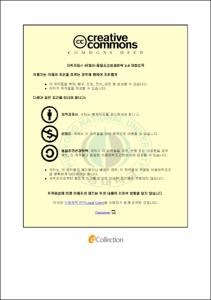중국 수출기업의 FOB 무역관행에 관한 연구
- Alternative Title
- A Study on FOB of China's Exporter:Focused on Chinese Cases
- Abstract
- Trade terms are products of a certain historical stage. With the development and advancement of the international trade transportation and communication, more and more trade terms are much more used in business. Free on board (FOB) is a typical example. At the end of the 1990’s the International Chamber of Commerce conducted a statistical investigation. According to the study, FOB is the most frequently used term in 40 countries. Although the varieties y of trade terms areis increasing, FOB is still is the key point of International Sale of Goods Act. There are two practices to interpret FOB trade terms, 《INCOTERMS 2000》and 《Revised American Foreign Trade Definition 1941》. In which FOB contract is largely applied when exporting and importing special cargo, such as large solid objects and petroleum. In China, most of the exporters are not willing to take care of shipping, under buyer’s market circumstances. To be convenience, the exporters are inclined to use FOB in foreign trade.
In the past, most people believed that the risk of FOB trade term was minor. On the contrary, in real life, risks can be numerous. In market activity, the trade is accompanied with risks, especially in recent years. In 2000, the National Department of Commercial Affairs sent notices many times, requesting that the export unit sign the CIF contract as quickly as possible. However, as the main international trade terminology, FOB is impossible to be abandoned, particularly when it involves large amounts of cargo and petroleum transport. This is even obvious when the cargo has a special size, which requires the buyer to voluntarily arrange the transportation. In this situation, FOB is been using frequently. On top of that, solve problems associated with FOB is critical. Studying on existing questions and come up with alternative solutions is beneficial in reducing the risks as much as possible.
The FOB contract contains various kinds of risks, including bill of lading, foreign exchange, insurance and transport. This article provides a summary analysis of these risks and makes the corresponding responses, in order to study the risks and give the countermeasure. This thesis mainly compares the definition of FOB conventions in different countries. As well as how it affects international trade under a FOB contract. When using an FOB contract, we should estimate the risks at the first place and try to eliminate it before the problems occur. This is an urgent matter which our exportation enterprise should face. Through the case, it has been proved that the FOB contract should not to be abandoned so long as appropriate actions been taken. The risk is an objective reality, but it alsocan canalso be avoided. The main point of this article is to introduce the risk which is caused by the No-Bill Delivery under Straight Bill of Lading in FOB terms, and by the different forms of payment like L/C and D/P. This article also pays much attention to the non-ship carrier question that appears frequently when choosing an FOB contract to export.
Although there are risks in the practice, an FOB contract is still needed. In order to reduce the risks, under the instruction, the author reads and studies the related material and books. For this question, I’ve expressed my own point of view. The aim of this paper is to propose some possible solutions and countermeasures for the foreign trade enterprises which have difficulties in using FOB contracts in our country.
- Issued Date
- 2013
- Awarded Date
- 2013. 8
- Type
- Dissertation
- Publisher
- 부경대학교
- Alternative Author(s)
- Sun, Jing Yang
- Affiliation
- 대학원
- Department
- 대학원 국제통상물류학과
- Advisor
- 윤광운
- Table Of Contents
- ABSTRACT ⅲ
제Ⅰ장 서론 1
제1절 연구배경 및 목적 1
제2절 연구의 방법 및 내용 3
제Ⅱ장 FOB조건의 이론적 접근 4
제1절 INCOTERMS의 개념 및 적용법위 4
1. INCOTERMS의 발전 및 의의 4
2. FOB조건의 개념 및 특징 6
3. 개념 및 적용에 관한 논의 10
제2절 중국 수출기업 FOB조건의 현황 12
1. 중국 수출기업 FOB조건의 특징 12
2. 중국 수출기업에서 FOB조건의 활용요인 17
3. 중국 수출기업의 FOB와 CIF조건의 무역비용 비교 19
제Ⅲ장 중국에서의 FOB조건 적용사례 및 분석 23
제1절 FOB조건의 무역적용사례 23
1. 중국기업 물품 인도 사례 23
2. 중국기업 물품 인수 사례 25
제2절 보험에 관한 사례 28
1. 보험 사례 1 28
2. 보험 사례 2 30
제3절 신용장에 관한 사례 33
1. 신용장 지불방식 사례 1 33
2. 신용장 지불방식 사례 2 37
제4절 T/T지불방식 사례 42
1. T/T지불방식 사례 1 42
2. T/T지불방식 사례 2 43
제Ⅳ장 FOB조건의 실무적용상 문제 및 방지대책 47
제1절 화물의 인도 문제 및 방지대책 47
제2절 보험에 관한 문제점 및 방지대책 50
제3절 신용장 지불방식에 관한 문제점 및 방지대책 52
제4절 T/T지불방식에 관한 문제점과 방지대책 55
제Ⅴ장 결론 59
결론 59
참고문헌 62
- Degree
- Master
- Appears in Collections:
- 대학원 > 국제통상물류학과-FTA비즈니스전공
- Files in This Item:
-
-
Download
 중국 수출기업의 FOB 무역관행에 관한 연구.pdf
기타 데이터 / 998.47 kB / Adobe PDF
중국 수출기업의 FOB 무역관행에 관한 연구.pdf
기타 데이터 / 998.47 kB / Adobe PDF
-
Items in Repository are protected by copyright, with all rights reserved, unless otherwise indicated.